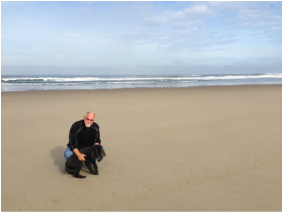
And slowly, I’m getting done what needs to be done. I recently sold Mark’s car. I’d never sold a car before, but friends gave me good advice and I did my research, so I muddled through the process. It made no sense to keep the car, but it was emotionally difficult to peel away another piece of Mark. He loved the car, and everything about the car reminded me of him. I sold it to a friend who is thrilled to have it, and it was comforting to me to think that Mark would have approved.
But then I wondered, why do I feel this way?
What do we owe to the dead? Some years ago, I read an article asserting that we owe the dead nothing. We do our best for those we love and those to whom we have obligations while they’re alive. But after they’re gone, they’re no longer a part of our world, which continues to change and evolve. So, the author argued, the living are free to behave as they will, in accord with their own needs and conscience, without regard to what the dead would have wanted.
I recall that the article focused mostly on deathbed promises, the vows made to a dying loved one. Picture the young son, grasping his mother’s hands as she whispers out her last words: Promise you’ll never abandon the family business. Promise you’ll never marry that horrible girl. Promise that you’ll take care of Toto. Yes, he says, yes. Anything to give her comfort in her final hour. But how seriously must he take those promises after she passes?
I made no such promises, nor did Mark ask me to make any. Mark rarely imposed his judgment on any of my decisions while he was living, so wherever he might be, I don’t imagine that he’s passing judgment on them now . Yet I find myself imagining his reaction to my actions, as if I should take his opinions into consideration, and I find these imagined reactions quite compelling.
Years ago, Mark’s mother and my mother passed away within a few months of one another. Mark and I each received an inheritance. We decided to use them to pay off our house mortgage. I remember that our decision was reinforced by our confidence that our mothers would have found this a good use of this money, even though we didn’t imagine them hovering above watching us. Making a decision that we thought was in line with our mothers’ values was comforting and reassuring to us.
The truth, I believe, is not that it’s a matter of obligation, moral or otherwise, to consider what the dead would want or feel about what we do. As I think it through, I believe it’s a way of keeping those dear to us close and honoring them, even when they’re gone. Perhaps it’s our way of extending their time with us, through our recognition that although our loved ones are gone, we’ve incorporated some of who they were into the core of ourselves.


 RSS Feed
RSS Feed
